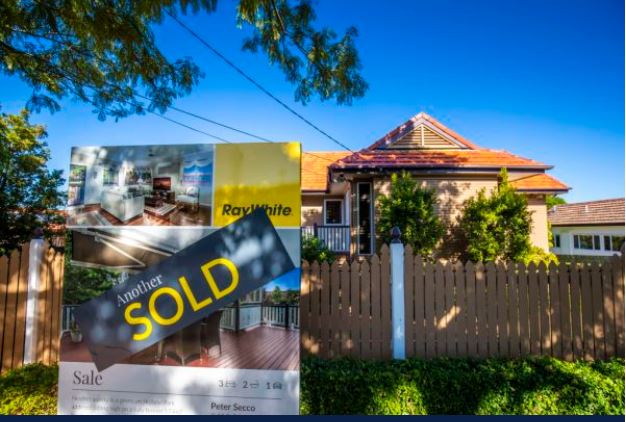You still have a chance to start a real estate investment portfolio even if you don't have a lot of money.
If you are clever about it and keep a few essential things in mind throughout the process, having little money need not be an impassable obstacle to property investment.
You most likely believe that if you have a low income, your loan application will be immediately rejected. The lender may not consider you to be a "blue-chip" applicant, but that doesn't mean the answer to your application will definitely be "no."
Would you like to speak to a specialist? Book a complimentary discovery session by calling: (03)999 81940 or emailing team@klearpicture.com.au.
We give advice on how to increase your chances of being accepted so you may realize your investment objectives, whether you're unemployed, part-time or casually employed, just starting out in your career, or receiving Centrelink benefits.
Believe it or not, if you're smart and do your research, you may invest in real estate for little to no money.
Although these situations are quite case-specific and won't apply to everyone, we should point out that if you happen to mirror some of the ones we're about to describe, you'll be well on your way to investing in real estate on a budget. We'll also examine what is necessary for those with modest incomes to obtain a mortgage.
Current Equity
If you currently own a home or an investment property, you can borrow money against the equity and use that money to pay for a new deposit. This is ideal for property owners who are considering diversifying to expand their portfolio and add a rental.
Accessing equity serves as a substitute for having the necessary savings, and as an added benefit, if you acquire more properties, your equity will increase more quickly, resulting in greater capital growth. This takes on a snowball effect because it becomes simpler to expand your real estate portfolio the more equity you have access to.
The fact that this popular tactic also increases danger should not be overlooked, though. Property investors are more likely to default because they use equity to expand their properties rather than paying out savings. As people borrow on top of their boom-era wealth, many people believe that this tactic maintains housing prices high.
Plan your budget ahead and choose regionally
It's critical to understand not just how much you may borrow and spend, but also what that sum will get you in the desired location.
For instance, an investment-grade property in Melbourne starts at roughly $450,000, but many investors can enter the market if they expand their horizons beyond the nation's capitals.
Geelong, Ballarat, and Bendigo would be nice possibilities to think about if you were in Victoria.
There is still a component of scarcity value to your property because it is compared to period type dwelling that is often located within one or two kilometres of the main central business district. However, it should be viewed as a stepping stone to return to a metropolitan market where you'll simply receive a wider range of demand and more pressure on capital growth.
Talk to a reputable finance broker
Don't limit your alternatives for a home loan to only your regular bank; otherwise, you risk undervaluing your situation. A financial broker will be able to identify the best loan option for you, including a lender that will increase the amount you are able to borrow.
You can still get a greater loan-to-value ratio from some banks.
They are now constrained by APRA, as we all know, but if you just go to one bank, they will only offer you their criteria, but other banks may be a little more lenient and look at negative gearing or bonuses in various ways. They have various serviceability standards.
Find a broker who can assist you in obtaining the ideal loan for your needs.
Employ a guarantor
If you already have a foot in the door of the property, the first point is great. But what if you don't?
A guarantor loan, which increases your borrowing capacity, is another way to invest in real estate with limited income. In situations when a friend or a member of your family agrees to guarantee a portion of the mortgage on your behalf, some financial institutions will provide guarantor loans. There is less danger for them because they don't even have to guarantee the entire loan.
The majority of banks and other lenders permit the guarantee to cover a specific portion of the loan. In a perfect world, you would hold 80 percent of the LVR (Loan to Value Ratio), and the remaining 20 percent would be secured with cash or a guarantor loan. To cover the parts you don't have, you may be able to utilize a guarantor in certain circumstances if the bank approves it.
Your friend or relative only has to be involved for a short time since you can remove the guarantor once you have enough of your own money or equity to pay off the debt.
Seller finance
Be cautious that this alternative is uncommon yet legal in Australia before becoming overly enthused about it. When you and the seller of the property come to an arrangement, you take out a loan from the owner rather than a bank.
Why do this? You won't need to make a deposit. In essence, you waive the need that you have the money available upfront for a deposit and agree to pay the full purchase price of the property plus interest on an ongoing basis.
Both the buyer and the seller will undoubtedly gain from this because you are eliminating the need for up-front savings and the seller will receive the full market value of their property plus interest. Remember that there is no cap or authority regulating the loan and that dealers may charge high interest rates. Despite the considerable risk involved, the seller gives an opportunity to purchase a property with a deposit or in situations when the bank would not accept a loan. It might be in your favor if you can figure out where this is on the table.
Property options
The method of property options is even more uncommon than the previous point. The objective is to offer the owner of a property a sum of money in exchange for the right to purchase the property.
Why? The contract gives you the option to buy the home for less money if its value rises, which makes getting a loan for the full purchase price easier because of a higher property valuation. You will need to engage with a lender who is familiar with these agreements and is prepared to base the loan on the valuation, rather than the purchase price, as this is more complicated than a typical purchase.
Partnership contracts
You may organize a partnership that has the deposit and is willing to pay the bill in exchange for you performing the legwork, much like finding financing for a company idea. This could only give you a minor ownership stake in the property, but it's a start and a great method to acquire ownership without having to pay upfront.
This is helpful for those who wish to invest in real estate but lack the time to do it. They can simply pay someone with a part of the property to handle the process on their behalf. It requires a lot of time to buy a property and investigate new projects to locate the best investment. You may even propose that they pay the deposit in exchange for your efforts in organizing the transaction and that they help finance the property with your salary, giving you 50% ownership.
In order to make it extremely obvious how profits and losses will be divided, you will need to take into account the legal obligations associated with this, ideally with the assistance of a professional legal counsel.
As an alternative, many prospective buyers who lack the funds for a down payment opt to purchase the property with a friend or family member.
But there are certain downsides to that strategy.
The advantage is that having two income sources combined will demonstrate your ability to make payments and increase your deposit. The issue is that since you and your friend are jointly liable for the loan, you are accountable for the entire amount and not just a portion of it should your friend lose their job or be unable to make payments.
Locate a property that the bank likes
It's not essential that you fall in love with the property because it's an investment rather than a place you'll call home. Instead, seek out a house that the banks are crazy about, and you might be able to reduce the deposit they need from you.
They'll lend you more money if you purchase the correct kind of property in the right postcodes. Take (Melbourne) 3000 and 3004 as an illustration; all those postcodes, Docklands, and Southbank, are the same in Sydney and Brisbane. They require a larger deposit where all those new and off-the-plan properties exist because they consider them to be riskier.
Choosing the ideal property
The value of the property should ultimately rise as rapidly as possible. Concentrate on finding one-bedroom flats in low-rise buildings with fewer than 20 units.
Things with a lot of apartments are not something you want to look at. You are in a calm residential street that is typically an older type block, close to public transportation, but not on the main road, and still close to some sort of hamlet. It usually has a designated parking place and was constructed between the 1930s and the 1970s.
Buy ahead of schedule
Purchase a property before it is built, and if it grows in value by the time it is built, you can borrow money against the increased value to pay for the down payment. Locate places where real estate values are anticipated to rise in the near future.
Purchasing real estate off the plan, that is, before it has been built, can be a smart method to do so while using minimal money, but it can also be very risky. Powerhouse self-taught real estate investor Ian Hosking Richards claims buying off the plan has accelerated the growth of his portfolio.
According to Hosking Richards, a benefit of purchasing in this manner is that an investor can use the newly obtained equity to pay all or part of their deposit if the value of the property appreciates quickly between the exchange of contracts and development.
By employing this technique, you can finance the acquisition by borrowing against the instant equity. Investing in a market that is expanding and borrowing against the final valuation are the keys.
When employing this strategy, investors must exercise caution. The tactic only succeeds when an off-the-plan property is bought for a reasonable price in a developing market. A longer lead time is also necessary for the development.
Option contracts
Strategy: Negotiate an option agreement with the vendor, whereby you have the choice but not the responsibility to purchase the property. Find a strategy to boost the property's worth so you can sell it again for a profit.
Requires: A vendor, typically a distressed seller, who will sign an option agreement
When a buyer and seller agree to an option, it means the buyer will pay the seller a set sum of money - typically a few thousand dollars, depending on the property - to obtain the right to buy the property at an agreed-upon price until a specific date.
If the buyer decides to buy the property, this sum, say $4,000, will often be applied to the purchase price. The vendor keeps the money if the buyer doesn't exercise the option.
The buyer has the option and the only right (but not the responsibility) to purchase the seller's property during the option period. Typically, a contract of sale will have been drafted before the option is signed, so if the option is exercised, the terms will have already been decided upon.
If an investor can find a way to raise the value of the property, they can use these kinds of agreements to raise capital. By doing this, they can make a profit by selling the option to buy the property to a different buyer who is prepared to pay the increased price.
It's a hazardous strategy that depends on the investor's capacity to negotiate a fairly cheap purchase price for the option as well as the capacity to add value to the property in a way that is both efficient and affordable (such as a cosmetic refurbishment).
The other problem is that, unless they have had some difficulty selling their properties, few vendors will be ready to accept an option.
Qualifying for a mortgage on low-income
Due to the fact that each institution has its own lending standards and serviceability models, there is no set income requirement to qualify for a mortgage. You can use a variety of internet calculators to get an idea of how much you might be able to borrow.
One of the most important aspects in this procedure is your income, which affects your ability to make the required payments after taking into account loans, expenses, and obligations as well as your saving habits.
Your sources of income will range from your primary salary to dividends from other sources, rental income from an investment property, and government perks. Together with your loan payments and other expenses, the financial institution will assess your income to determine how much money they are willing to lend you.
In light of everything said above, it is critical for low-income individuals wishing to purchase real estate to meet the following requirements:
- Evidence of "genuine savings"
- a 10 to 20 percent down payment;
- A suggested investment purchase of a workable investment, especially in a place with predicted capital growth, demand, and high rental yield)
This final consideration is essential because your prospective property must be marketable in the event that it needs to be repossessed and sold. If you are considering buying as an investment, give the lender your investment plan after consulting with a financial adviser and an accountant to make sure you are making a wise choice. You gain from this because your borrowing capacity is determined by taking into account projected rental income. High-yield properties improve your ability to pay back the loan.
Would you like to speak to a specialist? Book a complimentary discovery session by calling: (03)999 81940 or emailing team@klearpicture.com.au.
Figuring out how to invest in real estate on a limited budget
It can be difficult to choose how much to spend on your first property if you're considering making your first foray into the real estate market. With low income or little savings, this can be much more difficult. Hopefully, some of the information above will help you start down the path of developing an investment strategy that will pay off for you in the long run. Consider each strategy's level of risk and decide if it is worthwhile.
The most important thing to remember is not to overextend yourself financially only to acquire a piece of property. In some circumstances, it may be preferable to wait until you have a bit more collateral to avoid getting into a risky scenario that could leave you in financial trouble and lead to the reverse of what you were intending to achieve. Be wise, seek advice from professionals regarding your finances, and ensure that entering the field of real estate will enhance your circumstances.




